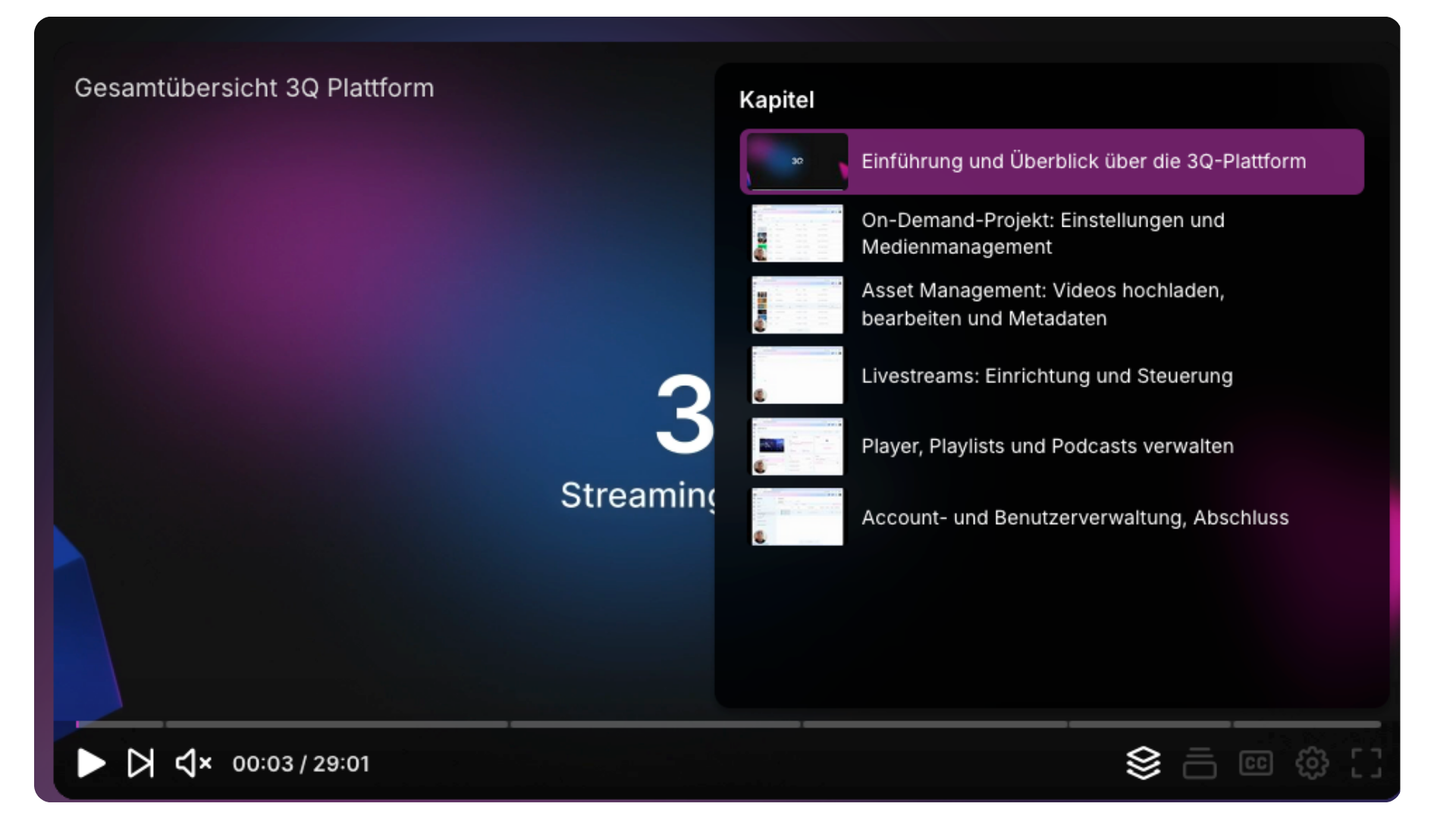The benefits of professional video hosting
.png)
What is video hosting and why are business video platforms essential for companies?
What does video hosting mean?
If you want to embed a video on your website, you need a place where the video file is saved — that's called hosting. With video hosting, the video is stored on a server, which makes it available to visitors to your website reliably and with high performance.
Why shouldn't you simply store videos on your own server?
Technically, it is of course possible to host videos directly on your own server. But this has several disadvantages:
High server load
Videos consume a lot of bandwidth. With many simultaneous requests, your server can quickly reach its limits — your website becomes slow or, in the worst case, inaccessible.
No automatic adjustment
Professional video hosting platforms automatically adjust resolution, quality, and format to the user's device and connection speed. Your own servers usually do not offer this.
Lack of streaming handling
Features such as adaptive bitrate streaming, chapter markers, preview images or CDN delivery are missing when hosted on your own servers. This can significantly impair the user experience.
Lack of analysis features
Your own servers don't provide insights into how your videos are performing, such as how many people watch your videos, how long they watch, or when they jump off.
Why isn't YouTube video hosting ideal for businesses?
Many companies use YouTube as a video hosting platform out of convenience or out of ignorance that there are better solutions for companies and institutions. While YouTube is free, it has a number of drawbacks.
Promotion
Your videos are played with advertising. In the worst case, from competitors. In addition, video suggestions often appear at the end that have nothing to do with your company.
Your own branding is not possible
The design and player are YouTube-branded and cannot be adapted to your corporate design.
Privacy concerns
Using YouTube often results in the transfer of personal data (such as IP addresses) to US servers. This is problematic with regard to the GDPR.
No direct lead generation
YouTube doesn't provide native integration options for forms or call-to-actions to generate leads on your website.
What are the benefits of professional video hosting platforms?
A professional video hosting service is aimed specifically at companies and offers features that go far beyond simply saving and playing your videos:
Reliable performance
Global or European content delivery networks (CDNs) ensure fast loading times and smooth streaming.
Flexible integration
Videos can be easily embedded without or with your own branding, shown as pop-ups, or controlled via API.
Versatile video player
The use of a barrier-free, consent and cookie-free video players is highly relevant for companies.
Since 2025, the Accessibility Strengthening Act (BFSG) has required companies in Germany to provide digital content — including videos — barrier-free in accordance with WCAG standards. Cookie banners and consent solutions must also be designed to be barrier-free from mid-2025, as otherwise they may themselves represent a barrier to access.
Accessibility generally increases overall usability for all users, not just people with disabilities. Features such as subtitles, flexible controls, and intuitive navigation benefit everyone and improve the user experience. In addition, a consent-free and cookie-free player eliminates annoying cookie banners and ensures seamless, uninterrupted video consumption and significantly increases the number of video views.
Comprehensive analytics
You receive detailed analyses of views, playback time and interactions, for example. With these insights, you can optimize the performance of your videos.
Lead generation
With CTAs, overlays, and other integrations, you can run data-driven campaigns right in the video.
Security & rights management
Use token, password, SSO login, or geoblocking protection. This allows you to specifically control access control for internal or external target groups.

Why are European video hosting providers the best choice?
Data protection is of central importance for companies based in the EU or target groups in Europe. This is exactly where European providers come in.
GDPR compliance out of conviction
European video hosting platforms with their own infrastructure in the EU guarantee the storage and processing of your data and content exclusively on European servers.
But beware: storage on servers in Europe alone is no guarantee of GDPR compliance. Check that the provider you have chosen is EU-US data protection agreement has joined, and only consider services that are exclusively subject to EU law
Check if the provider of your choice no data in third countries How the USA transmits. Auch Contract data processing contracts (ADV) should be available and last but not least should a Consent and cookie-free video delivery be possible.
Certifications & Compliance
Professional video hosting providers have ISO certifications, operate their own data centers or rely on certified European partners. This ensures maximum transparency and legal certainty. This is particularly relevant for companies in the healthcare sector, the financial sector or the public sector.
Individual support instead of mass platform
In contrast to global platforms such as Vimeo or YouTube, good business video hosting services offer personal support, customized setups and direct contact with the provider. For companies that rely on partnership instead of anonymous services, this is the ideal solution.
Conclusion: Video hosting belongs in professional hands
Anyone who uses videos as a company — whether for marketing, sales, corporate communication or training — should rely on a specialized video hosting provider. This is the only way to benefit from data protection, security, stability and a seamless experience for your viewers.
European providers with GDPR-compliant infrastructure have a clear advantage here. They not only offer security, but also flexibility, quality and proximity. Anyone who wants to rely on sustainable, privacy-compliant video strategies today is in the right place.
Want to learn more about video hosting?
Get our comprehensive Guide.
Newsletter
Abonnieren Sie unseren monatlichen Newsletter, um immer auf dem Laufenden zu bleiben!


%202.png)







